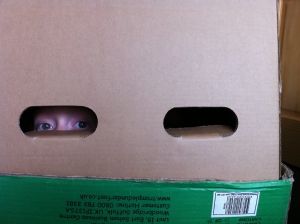This is one of the most frequently-asked questions about home-education. But briefly, the answer to this depends on what you mean by “socialisation”.
Do you mean “How will my child make friends and get to spend time with others his/her age?”
If so, the answer is “in lots of ways”. Your child can spend time with other local children outside school hours, and you can go along to the many events organised by other home educators. He or she can be part of organisations like Scouts, or local drama groups, or dance classes, or St John’s Ambulance, or martial arts classes, through the various home education groups and co ops or… well, you get the idea. In fact, your child will probably have more time and energy available for those kinds of activities because he or she won’t be spending all day in school and all evening doing homework.
Many home-educating parents also find that their children develop friendships with people of many different ages and backgrounds, rather than mostly having friends who are similar to themselves.
Our Facebook Group is a good place to start…
Or perhaps you mean “How will my child learn to get along with other people, to fit in? Will my child grow up to be a misfit?”
Many home-educators would argue that the process of socialisation – that is, learning to get along with others – isn’t served well by the school experience. They would question whether the limited nature of children’s social experience at school prepares them adequately for the realities of adult life. School is only “real life” for as long as you attend, unless you go on to be a teacher. Real “real life” is very different to classroom “real life”.
In a school classroom (and this is particularly true in Northern Ireland), most of the children will probably have broadly similar backgrounds, have had broadly similar experiences, and will have been born within the same academic year. Many home-educators feel that this is a unique and very contrived scenario which is not repeated in any other aspect of life, and that home-educated children have opportunities to meet a much wider variety of people, and to learn many different things – including social skills – from people of all backgrounds and all ages – just as they will through the rest of their lives.

